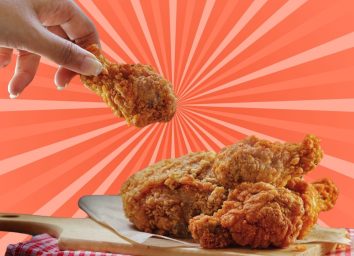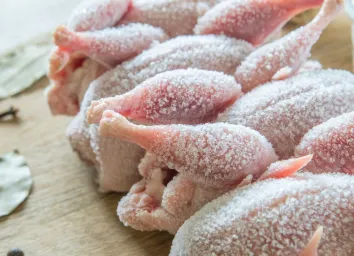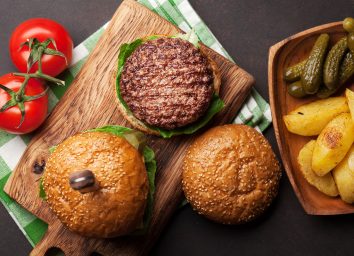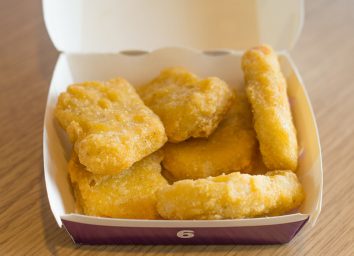This Is Why You Should Never Rinse Raw Chicken
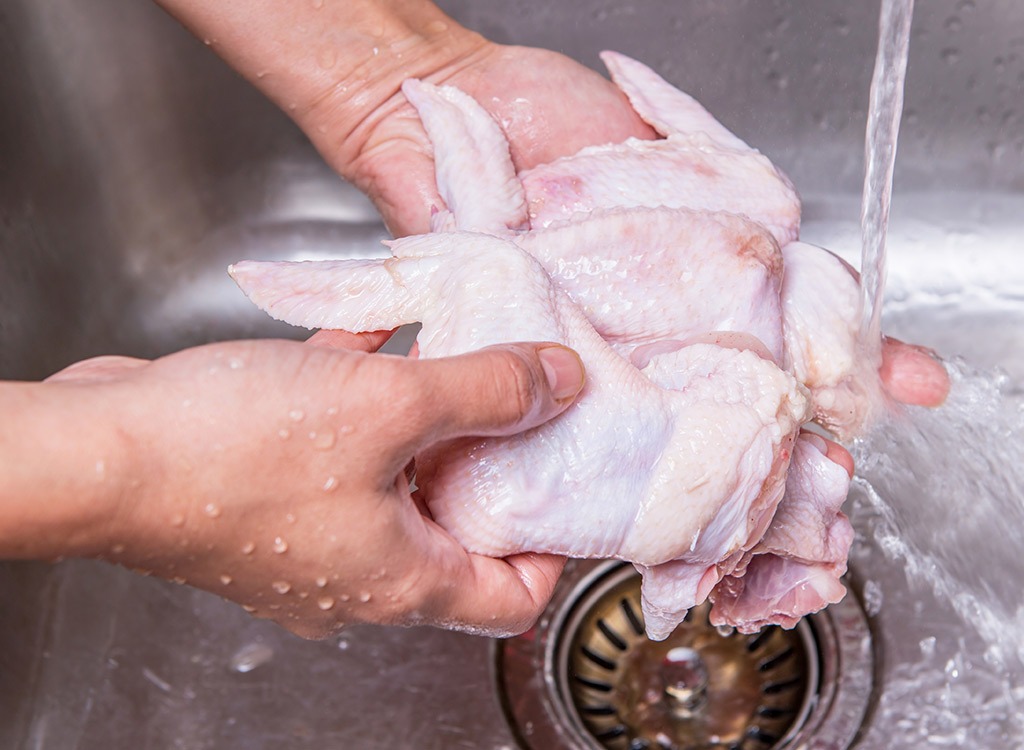
Julia Child may have been a proponent of washing raw chicken, and while she arguably goes down in history as the chef at the forefront of introducing America to masterful French cooking in the household, food safety was not on her radar. And it’s been proven that basically, you should never rinse raw chicken.
To Child’s credit, it really hadn’t been a focal concern for many people during her time, and no one ever told her she should never rinse raw chicken. In fact, the 1960s, which was when her show The French Chef debuted on PBS, was the same decade that laws on food regulation and safety were just beginning to emerge. Plus, plenty of people even today still think it’s best to rinse raw chicken before they get to cooking.
According to a new study published by the Department of Agriculture, 300 participants were recruited to prepare chicken and salads. Some participants were shown food safety videos and were told not to wash chicken before preparing it, but for those participants who didn’t get this information, 61 percent rinsed the raw chicken and almost 30 percent of those who also made salads where they prepped the chicken ended up with salads that were contaminated with bacteria from the chicken. Yikes.
Nowadays, the Centers for Disease Control and Prevention and food safety researchers from universities across the U.S. alike repeatedly issue warnings to never rinse raw chicken in the sink prior to cooking. Why? Meredith Carothers, the technical information specialist at the USDA’s Food Safety and Inspection Service, says that it’s because it increases the risk of cross-contamination.
“By rinsing chicken meat, there is a potential to spread foodborne illness bacteria, like Salmonella or Campylobacter, to other surfaces or utensils,” she explains. “If these surfaces or utensils are not cleaned or sanitized, it could spread to ready-to-eat foods and cause foodborne illness.”
Plus, water won’t kill that bacteria, and what’s worse is that once the water hits the meat, the bacteria splatters all over your sink, hands, clothes, and kitchen. In fact, the illness-causing bacteria can fly up to three feet away from where the chicken is rinsed, according to a post from the USDA. The scariest part: Because it’s not possible to see where the bacteria is lurking, it’s almost impossible to clean it up, increasing your odds of foodborne illness.
As if there weren’t enough germs in the kitchen as-is, washing raw chicken only spreads pathogens that could be lurking on the meat to other kitchen tools and countertops.
If you’ve been washing your chicken, it’s really time to stop—and make sure you disinfect and sanitize your kitchen.
“For extra protection, you may sanitize with a solution of one tablespoon of unscented, liquid chlorine bleach per gallon of water,” says Carothers.
Washing your hands immediately after touching raw meat is another preventive step you can take to avoid cross-contamination.
“Hand washing after handling raw meat or poultry or its packaging is a necessity because anything you touch afterward could become contaminated,” she says.
Pathogens that reside on raw chicken will die off once they’re exposed to high temperatures. For chicken, the rule of thumb is to make sure the internal temperature reaches 165 degrees Fahrenheit, which you can ensure with the help of a food thermometer. However, those pathogens don’t die off as easily if they’re lingering in your room-temperature kitchen sink, on your countertop, or on nearby kitchen tools.
Now, stop giving raw chicken a bath, and instead, just plop it on the sizzling skillet or on the sheet pan, no rinsing required. After cooking, be sure to let the chicken rest for 15 minutes so the juices can redistribute, and we know you’ll be left with an equally delicious meal—minus a side of germs around your kitchen.
